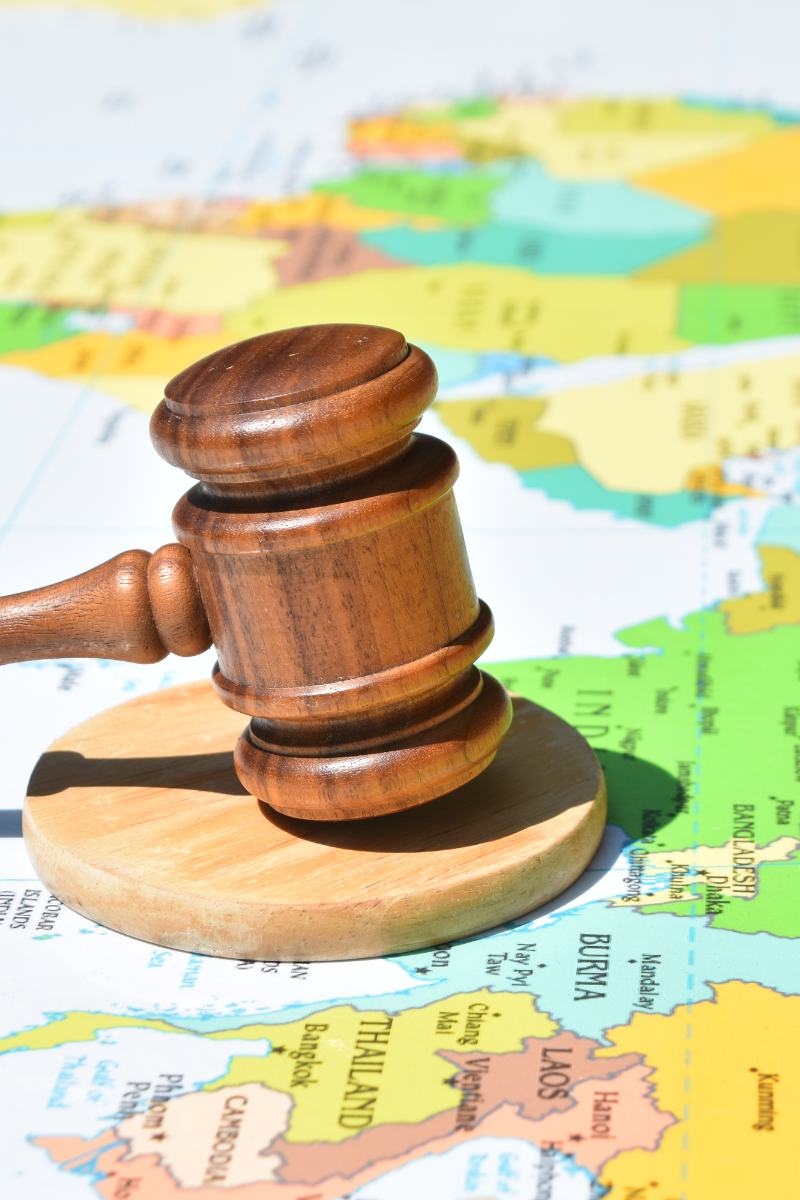Child Abduction Lawyer: Does The Hague Convention Work?
Every year, thousands of children are wrongfully taken across international borders, leaving families in turmoil. According to the National Center for Missing and Exploited Children, 59% of all AMBER Alerts that were issued were for family abduction cases. This is a stark reminder of the growing prevalence of this issue.
In this blog, we’ll delve into the purpose and functionality of the Hague Convention, uncover its strengths and limitations, and explore how Masters Law Group’s child abduction lawyers can provide vital support to families caught in the crossfire of international parental abduction. Here’s what you need to know.
Understanding the Hague Convention
The Hague Convention on the Civil Aspects of International Child Abduction offers a vital framework for cooperation between countries. This treaty facilitates collaboration to address complex custody disputes involving cross-border abductions, ensuring a fair process for resolving these challenging cases.
One of the Convention’s key principles is that it does not depend on the child’s immigration status or nationality. However, challenges can arise when a country wrongfully detains a child who is not a resident. Custodial rights are considered violated when a child is removed from their habitual residence and taken to another country without proper authorization.
Role of the Central Authority
The Hague Convention designates a Central Authority in each participating country to manage cases of international child abduction. The Central Authority has several critical responsibilities, including:
- Acting as the main point of contact for parents and children in international custody disputes.
- Assisting in locating abducted children.
- Facilitating solutions that prioritize the best interests of both the child and the parents.
- Ensuring legal documents are properly submitted and admissible in the courts of partner countries.
Navigating the complexities of international child abduction cases requires experienced legal representation. Child abduction lawyers play a critical role in helping protect the welfare of children and supporting families through these emotionally taxing situations.
How the Hague Convention Works 
The process begins when a parent files an application with the Central Authority in their country. The application is forwarded to the Central Authority in the country where the child is located. Here’s an outline of the steps involved:
- Filing a Petition: The parent seeking the child’s return submits a petition detailing the wrongful removal or retention.
- Jurisdictional Review: The receiving country’s court determines whether the case falls under the Hague Convention.
- Hearing and Evidence: The court examines evidence to decide if the child should be returned.
- Return or Refusal: The court orders the child’s return if the petition meets the Hague Convention criteria. Exceptions, such as grave risk of harm, may result in denial.
While the Hague Convention provides a clear legal process, its effectiveness depends on various factors, including the involved countries’ cooperation and legal systems. Working alongside a trusted child abduction lawyer can help you navigate the intricacies involved.
Strengths of the Hague Convention
The Hague Convention is not without its challenges, but it remains a cornerstone in the global effort to help address international parental child abduction. Its strengths lie in the structure it provides for cooperation, its focus on the well-being of the child, and its emphasis on timely resolutions. These key features make the convention a vital tool for families to help navigate these emotionally charged and complex cases. Here’s a closer look at the strengths that make the Hague Convention so impactful:
- International Cooperation: The Hague Convention encourages collaboration among member states by providing a unified legal framework.
- Focus on Best Interests: The convention prioritizes the child’s best interests, emphasizing stability and legal custody rights.
- Swift Resolution: The convention aims to resolve cases within six weeks to minimize the impact on the child and parents.
 Challenges and Limitations
Challenges and Limitations
Despite its strengths, the Hague Convention is not without challenges:
- Non-Compliant Countries: Some nations are not Hague signatories, making it difficult to recover abducted children in those jurisdictions.
- Delays in Resolution: Although the convention sets a six-week timeline, cases can drag on for months or years due to legal and procedural complexities.
- Grave Risk Exceptions: Courts may deny the return of a child if there is evidence of a grave risk of harm, which can be subjective and lead to disputes.
- Enforcement Issues: Even with a court order, enforcing the return of a child can be difficult, particularly in cases involving non-compliant parents or authorities.
Does the Hague Convention Work?
The effectiveness of the Hague Convention depends on several factors:
- Country Participation: The convention works best when both countries are signatories and actively cooperate.
- Judicial Efficiency: The willingness of courts to prioritize these cases and adhere to the convention’s guidelines is crucial.
- Legal Representation: Skilled legal representation significantly navigates the complex legal landscape of international child abduction cases.
While the Hague Convention is not perfect, it provides a vital framework for resolving international child abduction cases. In many instances, it successfully facilitates the return of children, though there are notable areas for improvement.
How Masters Law Group Can Help
Navigating the legal and emotional complexities of international parental child abduction requires skilled and compassionate representation. At Masters Law Group, our experienced child abduction lawyers are dedicated to helping provide results-driven support to families facing these challenging situations. With deep experience in Hague Convention cases, we offer comprehensive assistance, including:
- Filing Hague petitions to initiate the legal process.
- Representing clients in court proceedings to advocate for their rights.
- Advocating for the prompt return of the child or defending against claims of wrongful removal.
- Collaborating with international legal experts to address the intricacies of cross-border cases effectively.
Our team is here to guide you every step of the way, helping your family’s rights be protected during this difficult time. Explore our proven track record and expertise in this area of law by reviewing our case successes here.
Final Thoughts
Understanding the complexities of the Hague Convention and its role in resolving international parental child abduction cases highlights the critical need for experienced legal guidance. These cases are deeply emotional and legally intricate, requiring a compassionate yet strategic approach.
At Masters Law Group, we are dedicated to helping protect your rights and achieve the best possible outcome for your family. Our award-winning child abduction lawyers have the experience and commitment to help you navigate these challenges with confidence. If you have questions or need assistance, contact us today to learn how we can help protect your family’s future.
FAQs About the Hague Convention
What is the main purpose of the Hague Convention?
The Hague Convention aims to secure the prompt return of children wrongfully removed or retained across international borders and to help ensure custody rights are respected.
What countries are members of the Hague Convention?
The Hague Conference on Private International Law (HCCH) includes 91 permanent members, comprising 90 countries and the European Union. All members agree to adhere to the Convention’s guidelines, helping ensure a unified approach to protecting children from wrongful removal or retention. A complete list of member states is available on the Hague Conference website.
What if the child is taken to a non-Hague country?
In such cases, recovery depends on the laws of the non-Hague country and diplomatic efforts. In these challenging situations, Masters Law Group has the experience needed to navigate the unique legal and cultural hurdles involved. Our team works diligently to present compelling evidence and help ensure the child’s voice is heard in a manner that is both appropriate and fair.
Can the return of a child be denied under the Hague Convention?
Yes, courts may deny a return if there is evidence of grave risk of harm to the child, if the child objects and are of sufficient age and maturity, or if the application is not filed within one year of the abduction. Masters Law Group can assist in gathering the necessary proof to establish your custody rights.
How long does a Hague Convention case take?
A Hague Convention case is designed to be resolved within a timeframe of around six weeks, aiming for a swift return of the child to their habitual residence; however, delays can occur depending on the complexity of the case, court backlogs, and challenges in gathering evidence.














